Keep Education Public
Allowing public entities to take over the education of our youth creates a dangerous situation, where profits are more important than the future of our nation. Corporations have enough sway over us with complete control of the media, powerful lobbyists, and little transparency on campaign finance. I don’t want to help them brain wash our youth too. Allow me a brief moment of sensationalism. Picture school hallways paved with cracked concrete and walled with billboard-style advertisements for Soft Drinks, Cell Phones, Video Games, and Fast Food. Picture classrooms that look more like lecture halls, with 60+ students to one teacher. Picture an overcrowded high school with as many security guards as teachers. This is the world of de-regulation and market control of schools.
Proponents of privatizing education — including my former self — will tell you how wondrous the magic of competition in the free market are. They will tell you that costs will plummet because of competitive pricing. They will tell you that parents will have more choices in schools because of the free market. This is complete and utter bullshit. What about the small towns where kids already have to hop on buses to get to school? What about Avalon, New Jersey where each class averages only 15 students? Are these private companies going to rush into that town and build 2, 3, or 4 schools to compete with each other over the tiny island’s kids? No! They’ll still have one school, and it’ll have to cut costs to be profitable or close down.

What about the big city schools? Sure, they’ll have more options because privatized education will see enormous class sizes as fat bottom lines, but what about quality? In poorer neighborhoods, the parents won’t be able to afford much in the form of tuition. The quality of education will go down while the schools in those areas turn into Value Menus. It’ll be hard to justify America being the land of opportunity when the poor don’t have access to proper education. It is unconscionable that any 1st World Country should have disparity between the education offered one race, religion, geographic residency, or income level to be any better or worse than any other. The market has neither the power nor incentive to ensure this.
But Corry! I thought you weren’t going to have kids! Why do you want to pay for an education system you aren’t using? Excellent question, self. Because I want a cell phone that I can play holographic games on. I want a flying car that runs on renewable clean energy. I want manned space exploration in my lifetime. I want peace. I want it all made here in the U.S. We will never have those things without raising our expectations for the average American. And then, on a more philosophical level, I want the world to be in better shape when I die than it was when I got here. Don’t you?
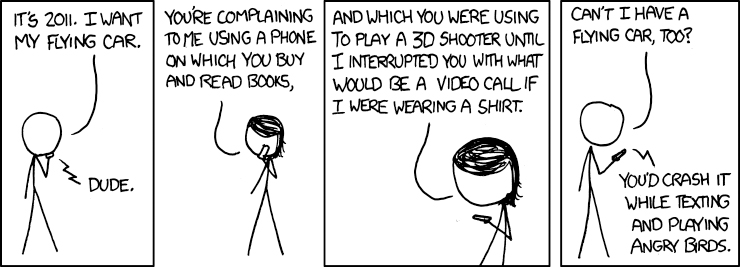
Take a look at what privatization has done to the prison industry. That would be the future for dismantling public education. Overpopulated, under-funded day care centers where the incentive is to cram as many students into a classroom as possible. They would have incentive to hold students back a year to charge their parents an extra year of tuition. There will be incentive to require prerequisites that are not actually important to their following courses just to squeeze more money out of parents for little gain. More standardization to keep students on the same path through school and minimize costs. More high school graduates that can barely read, but feel working at McDonald’s is beneath them.
Any good free market enthusiast should be familiar with economic incentives. The key to success in capitalism is to design incentives as such that people will be guided to what was best for the whole group because they receive personal rewards for taking those actions. Take a look at how for-profit schools are doing in higher education. They provide the minimum necessary to keep their certifications and sell degrees at a heavy premium. All while making us pay for school supplies, books — conveniently sold at the school store —, and transportation from our own pockets. The incentives for these schools are NOT better preparing their students for adult life in America. They are the bottom line and nothing else. This is a fundamental flaw in that entire way of thinking, and we cannot risk something so valuable as the minds of our future citizens on blind faith in the sacred cow, Market Magic.
Related Information:
- BrowardSchools.com: Public Vs. Private Education
- Netflix: Frontline: College, Inc. investigates for-profit colleges like the one (I regret) I went to.
- Salon.com: The Absurdity Lurking in Privatized Education by Lyn Lesch
- WikiPedia: Prison-Industrial Complex
- Article: The prison industry in the United States: Big business or a new form of slavery?
Teach Real-World Skills
Many people blame the housing crisis on “stupid borrowers that bit off more than they could chew”. The posit is the idea that these people should have known better, so they deserved to lose their homes. Where exactly were those people supposed to get that information? If you searched the internet for research during those times — which I did, because my real estate agent roommate at the time was trying to convince me to buy a home —, the results would be fed to you by real estate agents pretty much. They told me “yea, go for it!” “great investment!” “cash in on that equity!” on almost every site I looked at. Luckily for me, my credit was shit, or I’d be in REALLY bad shape today.
The purpose of a financial advisor (loan officer in this case) is to advise you — their paying customer — on financial matters, so that you can make the best decisions for your money. They are supposed to be getting paid by you to give you sound information for your sake, but instead they give you whatever information they can that will make them and their bosses the most money. If that means making you pay them for a couple years, jacking up your rate, and eventually stealing your house from you, so be it. How are you supposed to trust any expert, when they stand to gain from your negative outcome? Are we all expected to get degrees in finance?
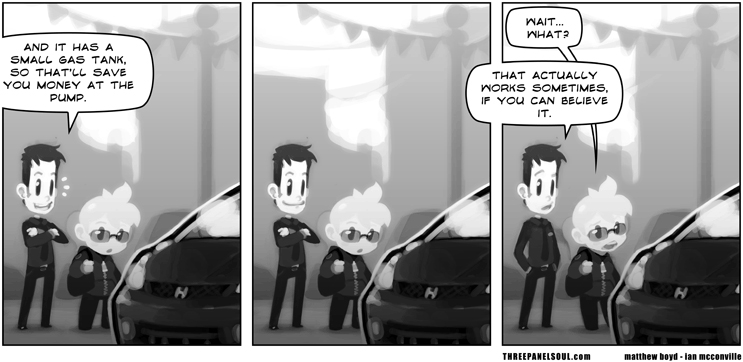
What about doctors? Attorneys? Priests? All of these professions arguably profit more when you are in bad shape than when you are safe, healthy, and fortunate.
Legislation needs to be put in place to simplify all legal contracts. No one reads the fine print because it is built to discourage you from reading it. No one understands legal and financial jargon, because it is purposely cryptic. Legislation itself must be simplified as well. No bill should be presented as a law unless the average American can read it in a reasonable amount of time and understand what it means. Hell, most of the bills that pass through senate and congress aren’t even understood and/or read by the representatives that vote on them! Until this happens, we MUST educate our public about these fields.
Every public school student should be learning real-life skills like: Credit and Loans, Basic Medicine and Personal Care (an extension of health class), Media/Marketing Skepticism, and Federal & State Law. As soon as they graduate high school (or turn 18), they will have all of these industries pounce on them immediately. Without giving them the tools to understand what they’re getting into, we have no right to blame them for being victimized by these industries. This applies to the rest of us as well. I don’t know anyone who hasn’t been screwed over by a misleading corporate practice at least once in their lives. This includes unexpected fees on a bank account or credit card, spontaneous rate hikes in utility bills, previously free services being removed or charged for, etc.
The current legal system makes this our fault, even though we are being conned just as much as the people who are buying into illegal telemarketing scams. We can no longer blame the victims without at least giving them the tools to defend themselves. Either shift liability for misleading corporate practices to the corporations (preferable, but unlikely), or educate the public.
Teach Students How To Learn, Not How To Memorize
The very best teachers I have ever had made me interested in learning, then empowered me to find things out on my own. They let me control my education. I wanted to learn in those classes. It’s how I got into Shakespeare, Computer Science, Writing, and 3D Design. When I was introduced to these things, it was by teachers who gave me open-ended assignments or made it fun. Acting out Shakespeare scenes made me love their humor and tragedy, even hundreds of years later. Writing short stories in middle school got me to learn how to type and write. Designing games and 3D graphics in my computer classes that could have easily just made me model widgets and calculate algebraic problems made me find the fun in those skills.
My middle school science teacher, Mrs. Palivoda, cut me loose when she realized how bored I was with the normal curriculum. She handed me my Science book and told me to go through it at my own pace. Once I finished the year’s work, I could write about whatever topic I wanted for a research paper. I finished the whole 7th Grade year’s curriculum in just under 3 months and spent the rest of the year researching and writing papers about stuff I thought was cool. If I was burnt out from that, she let me sit in the back of the room quietly drawing, reading, or playing cards with my friend who was also “gifted”.
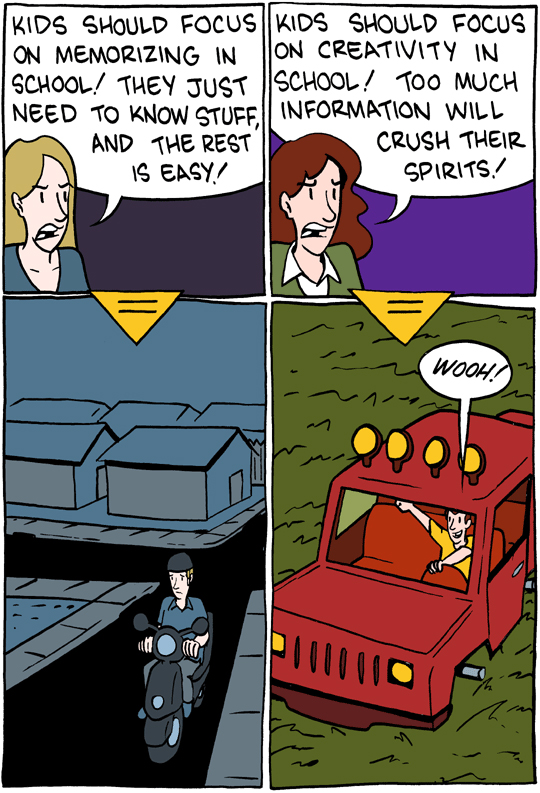
At the same school, my favorite math teacher Mrs. Guilliano knew I loved art, computers, and games. Once I finished her curriculum, she let me design worksheets for the rest of her class where I taught them how to plot points on an X,Y axis by connecting dots into various pictures. She got me setup in a computer class where I answered math problems on a timer and aimed for 100% accuracy in order to get to the next level. Eventually, I was using those computers to do high school level Geometry and Algebra in 6-7th grade. I’m told she still uses my worksheets, too.
My favorite English teacher in High School, Mrs. Shweikert, let me choose what I read. Mr. Weems, my Computer Science and Pre-Calc teacher, helped me learn with games like 3D Tic-Tac-Toe and C++ simulations. Mr. Efrus, my AutoCAD teacher, let me design my dream house (architecture class), space ships (animation), and 3D monsters (modeling). Guess what I do for a living today? I write (Mrs. Shweikert & Mrs. Palivoda), code (Mr. Weems & Mrs. Guilliano), design (Mr. Efrus), and draw (all of them that let me) using the knowledge that I started learning from those teachers.
Let Students Set Their Own Pace
Allow every student to “test out of” courses. If they can demonstrate acceptable understanding of a course’s material, they can be allowed to skip ahead to the next one. Putting a bored kid into a class that won’t benefit him isn’t good for anyone. Don’t restrict classes to age or grade level. If a 5th grader wants to learn Advanced Algebra, let him sit with the 8th, 9th, and 10th graders that are at the same level. Nowhere else in life are we stuck in the same place with people of only our age but in school. Why make age difference so socially awkward? Encourage students of various ages to help each other out with assignments and socialize. There will be few times when the ages of a particular class will diverge too much, but when it does, it shouldn’t be looked at poorly. Everyone learns at a different pace.
Give students plenty of time to get as much out of their classes as they want to. Allow students to take the same course a second time as a Project course. Allow them to set up a project that the teacher of that class approves and supervises and work on it independently during course time. We did this in my AutoCAD classes in high school and I was so jealous of the cool projects the more advanced students were working on (designing houses and vehicles), that I worked harder to learn the material so I could get to that point and know how to do the stuff they got to do. If demand goes up for project courses in a particular field, add a new class to that field and adapt to the needs of the students. This is a built-in window to what the future will bring.

Let them accelerate or prolong their education if they choose to. If a student works hard, never taking a summer break or taking extra credits when they don’t need to, reward them by giving them the option for early graduation. Once minimum credits and course completions are taken care of, they should be at a special tier within the school. They can choose to continue learning until they feel they’re ready to graduate, they have a less restrictive class schedule and are allowed special privileges. Instead of being confined to school grounds between classes, they can come and go as they please. Attendance rules won’t apply the same way, except that they will fail out and be excluded from classes where they don’t show up more than {amount determined by course} times. Students that fail too many courses after reaching this tier would be forced to graduate of course. Basically, take the common practice of “senior privileges” and bestow them upon incentivize the best and brightest that want to continue learning instead of merely the oldest.
Allowing students to set their own pace and re-take past courses will allow them to meet, learn from, and socialize with other age groups more. It will also take the stigma out of “reading at a 8th grade level” when the person is at a certain age. I’m 27 and still prefer reading books at around the 22 year old level. Kati and Eric (cousin) are younger than me and prefer stuff in the 30+ areas. Acting your age is so 20th century.
Teach Students What They Want To Learn
Guidance counselors are a great idea on paper. They talk to students, figure out their interests and try to suggest future careers that are aligned with those interests. The problem is, most guidance counselors that I’ve met had no idea what I was talking about when I told them I wanted to design video games or play with PhotoShop for a living. They just regurgitated the same old “gotta go to college” “check out this state school” “try hard on your SATs” bullshit that they told everyone else. Being a Guidance Counselor should require a bit more tact and persistence than that. Sure, the kids can do this stuff themselves, but they won’t. A guidance counselor’s job is to guide and motivate their students toward their goals. It has the potential to be a very impactful position in education, but is pretty much ignored until it’s time to fill out college applications these days.
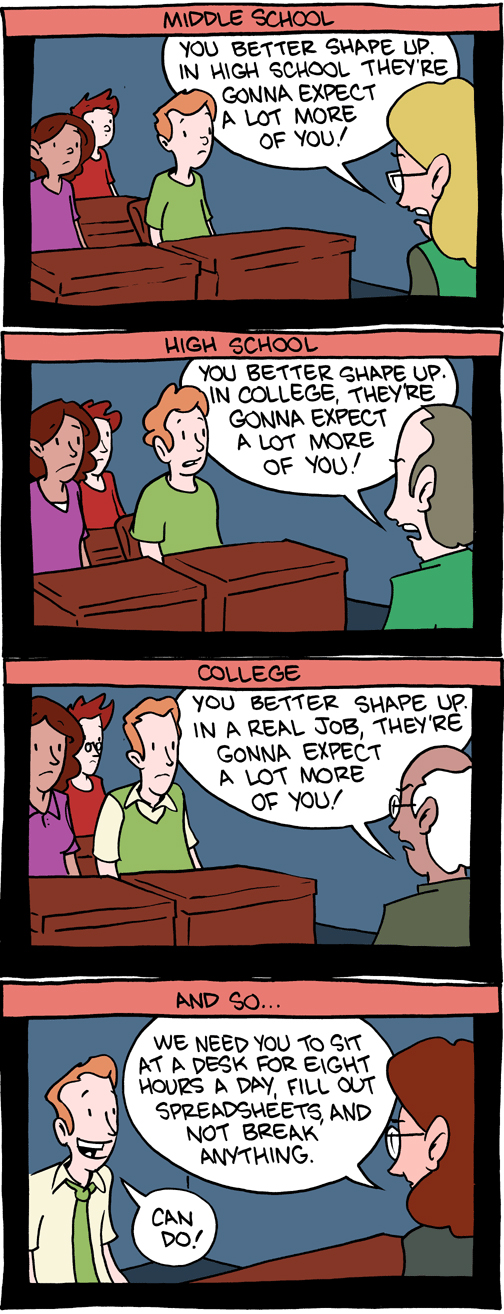
When a student tells you he’s interested in something that you don’t understand, do research. We have far more tools at our grasp today than we did when I was in school. Use LinkedIn to find someone that designs video games or plays with PhotoShop for a living and ask them questions (or even get them to talk to the student). It doesn’t take that long to shoot an email or two out, and I’m sure you could find someone receptive. The younger we do this, the better. I knew that I wanted to do that stuff when I was in 3rd-4th grade. If I was shown a path to get there from that age, I’d probably be one of the best in the world at it today. Instead, I got no direction at all until I was two years into a state university. Today, I wish I never went to college at all.
The other reason you do this at a young age is to avoid as much cynicism as you can. When kids are young, they’re more than happy to tell you exactly what they want to be when they grow up. They can’t wait to be writers, firemen, artists, architects, construction workers, mechanics, etc. The longer you wait, the less enthusiastic the kids grow. Standardized tests and watered-down classes do severe damage to our enthusiasm over the years. They kill our love of reading, learning, and discovery. If we want students to give a shit about learning, we have to help them hold onto that enthusiasm.
We can’t start this kind of training too early, of course. Every child still needs to have the socialization and basic skills taught to them in their elementary school years. Without being around other children on a regular basis and learning to work well together with them, we breed a generation of sociopaths. This is the buffer zone between being the center of the universe at their parents’ homes and becoming part of a group, where everyone is equal.
Now, we need to act upon the research we did. We have to find a path to each student’s goal using the public school system. Right now, we’ll say that student (me) decided that he wants to be a Game Designer when he was about 10 years old (he can change his mind whenever he wants, obviously). He is going to have to take his standard English, Math, History, Science, and Health courses. Beyond the basics, he probably won’t need higher level English classes. He’ll probably want Basic Physics, but Biology and Chemistry are less important. For math, he’ll definitely want Algebra and Geometry, but not need advanced Calculus. Lots of Art and Computer classes. Perhaps an Engineering or Shop class as well. Let him choose exactly what he wants to learn and do our best to group him with kids with similar goals.
Next, we need to decide which classes to offer. This is where the budget starts to stretch. Each year, a new array of students will advance upward through the system, and we’ll have to plan for their futures. Luckily, we don’t have to have every class available every year. Because we don’t segregate classrooms between the age groups, we can have everyone take Game Design class during the same semester. The teacher can be a contractor or they can just be a teacher that teaches other classes during other semesters. We also have to be certain that we maximize how many Majors can share courses. Colleges do this already. I wouldn’t be the only kid in Game Design class. We’d have students that were learning Computer Science, Sociology, Political Science, Communications, and Graphic Design. We’d have other students that just chose that course because they liked games in addition to their “majors”.
Related Information:
Teach For Reality
I have never used most of the crap I learned in High School since I left. After I finished college, my test-taking skills have done nothing for me. MLA writing format is bullshit (you can’t curse with it) and no one wants to read anything written in that format. Several hours of every day I was in High School gravitated more around gaming the SATs and subtle-ly cheating the College system. I don’t want to learn how to take tests. I want to learn how to do things that will actually get me somewhere in life. I’ve never heard anyone intelligently (and non-ironically) tell me that standardized tests work great, so I’ll leave that topic to more boring writers without original ideas.
Grading isn’t something I have strong feelings about. I prefer pass/fail over GPAs as long as the classes themselves are structured appropriately. A minimum standard for a pass in any class should be established by the teacher and communicated to students at the first class a la syllabus. That minimum standard should be stuck to. Even if using standard GPA style grading is the route we take, failing students that deserve to fail is critical to education. After all, you learn more from mistakes than you do from success. Sending a student along that is unprepared for the next class will do nothing but disservice to the student, the next teacher, and their next classmates.
Schools are not an isolated plane, separate from the reality of their communities. It is not a prison or overhyped day care center. It is a place filled with potential for production. It is where everyone that is going to live in that neighborhood in the coming years starts off. Why confine them? Have outdoor classes. Teach local history, current events, and social skills by walking around the neighborhood and meeting the people that live and work there. Use the student base to build and design things in the neighborhood. Teach marketing and business students how to work together to create and sell a product by doing exactly that locally. Teach by doing. Teach by building. Don’t send kids out into the world with theory. Send them out with experience.
Fighting Exclusive Education
As I’ve mentioned before, no one has the right to exclude any child from proper education. This includes Sex and Science. Parents should not be allowed to exclude their students from taking these courses for any reason.
(Time to make mom proud) Sex education should be a universally required course completion. It should have multiple courses available after the required one(s) for students who wish to learn more about it. Nothing should be shamed. Everything should be open and scientific. Abstinence should be taught as the best birth control, but masturbation should be equally part of that classification. After that, go through all of the best contraceptive methods and all their stats. There is nothing wrong with having sex with whoever you want, as long as it’s consensual and in private. No one can tell you when to have sex except for yourself. Each class should have time set aside for questions and answers and open discussion. As with any class, teachers of these courses should make themselves available for a short time outside of the classroom for 1-on-1 (private) questions. No ethics lessons, just facts. You know: HONESTY.

Science courses should be purely scientific. Religion has its place, and the government already helps pay for churches. Public schools, outside of art or philosophy classes, are the place for real world information.
On that note, Home Schooling should be illegal if not supplemented by at least 40 hours (5 days) of public education per week, for at least 9 months of the year. I feel that home schooling parents are using their “right to teach their child whatever they please” as a front for choosing to prevent their child from learning more. This is child abuse. Parents who find public education to be lacking can still have the other 128 hours of the week for their own home schooling if they so desire.
It is so sad that these are things we need to reform instead of it being common sense to tell kids the truth. This is why kids don’t trust adults. It’s why adults don’t trust each other. It’s why none of us trust the government. We do it to ourselves from an early age, by lying about Santa, God, Reasons for War, etc. We need to take a firm step forward in propelling our country to the top of the charts that matter: Education, Employment, Happiness. Or else, we turn into a theocracy of backward, intolerant, violent idiots — no better than radical Islamic countries.
Related Information:
- TED: Kathryn Schultz on Being Wrong (Video)
The Cost
We’re going to need more teachers. They are going to be more flexible in what they are able to teach. They are going to have connections with professionals in the fields they teach to help keep them up-to-date and relevant. They are going to be technology-savvy. Several teachers for more detailed or niche programs will be part-time or temporary contractors. The ones that instruct more varied classes will make more money. The ones that teach the highest demand courses will make more money. Unions will be empowered to certify what each member is qualified to teach, along with government oversight that already exists.
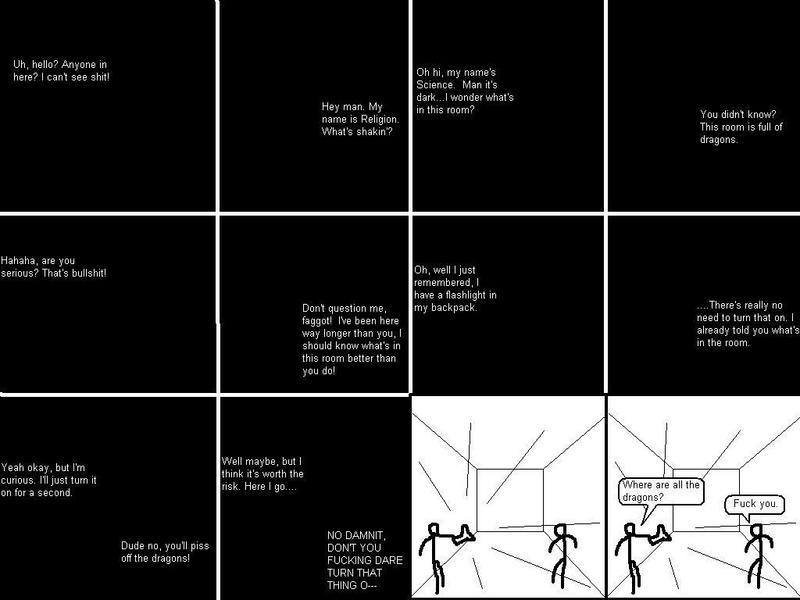
In this way, we are sort-of privatizing teaching. After each semester, along with their report cards, students will be given surveys to fill out about the courses taken and required to fill them out with their parents (signatures). The courses will be modified and the teachers will be rated based on these surveys. The unions and administrators will use those ratings as a part of their evaluations for future course assignments and compensation.
Ideally, class sizes will have to be capped at about 20. Individual attention is essential to educational growth. Every one of the teachers I’ve mentioned in this article gave me individual attention whether I wanted it or not. If I had that kind of attention, throughout my entire public education, I’d be a way smarter man today. Because of this, school will be open year-round. Students who want a full schedule will be able to graduate early. Students who want to take a quarter off can do so once per year. Some classes will be full or unavailable during some quarters, so the student will have the option to take that time off or use it to continue their previous courses if they want to go deeper into those subjects.
The returns on our investment will be new domestic products/industries, highly motivated high school graduates, children that take pride in their community, immediate productive development on a local scale, and a more informed electorate. Having a living, breathing school does wonders for the students. Having new courses come in and out of rotation for certain semesters keeps the material fresh and exciting. Giving students information they want and letting them skip the things they don’t care about will lead to fewer drop-outs, emergent learning, and higher morale — for students and teachers. The community will value its youth rather than complain about their property being next to a new school bus stop.
Yes, it’ll be expensive. I’m sure it can’t possibly cost as much as it does for us to kill brown people. We can probably get started with a fraction of the $687 BILLION dollar annual military budget. Time to get our priorities straight.
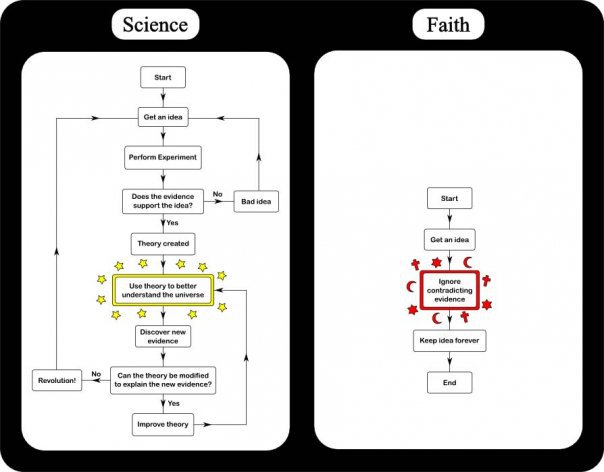
Footnotes
Emergent Learning
My Game Design teacher in college (aside: just because I regret attending the school, doesn’t mean the teachers were bad), Steve Swink, taught me about emergent gaming, which is when you build a system for a game that sparks an unexpected sub-game to take place. An example would be how negotiation and side trading are used in Monopoly, becoming a whole new game experience independent of the main system. Emergent learning is a spin on that concept.
Unplanned learning opportunities. Example: A group of students are talking about the earthquake/tsunami in Japan and what the radiation leaks could mean for other countries. Suddenly, a conversation is sparked where the students debate whether or not countries should have to consult the rest of the world when they want to build a Nuclear Power plant, since it has the ability to affect everyone. The conversation should be allowed to happen, and everyone has the emergent opportunity to learn from it.
